|
Hanover, Germany
 Value Added Tax
Value Added Tax
➤ Germany's VAT (called Mehrwersteuer and abbreviated as MwSt) is 19 percent, and it is charged on some services and permanently imported goods.
➤ If a U.S. company orders goods or services from a German company, the invoice will be billed in euros without VAT included, so long as the billing address is outside the European Union.
➤ VAT refunds are available, but obtaining them involves considerable paperwork and may take months. A German exhibit house or VAT-recovery company will be able to streamline the process.
 Voltage
Voltage
➤ Halls operate on 230-volt service (Schuko Plug) and 400V service (CEE Plug).
➤ Most electronics should only require plug adapters.
 Garbage
Garbage
➤ Exhibitors are responsible for the disposal of garbage created before, during, and after an event. Trash bins must be ordered from the organizer.
➤ Germany has special "Green fees" that may need to be paid for disposing of build-and-burn exhibits.
 Cellphones
Cellphones
➤ Your cellphone must be dualband or quadband to work in Germany.
➤ Disposable phones, rental phones, and prepaid SIM cards are all readily available.
 Shipping
Shipping
➤ Clearing customs often takes a week, but high volumes and security concerns may cause delays.
➤ Exhibitors should use the show's official freight forwarders or logistics firms with specific expertise in shipping exhibit materials to Germany.
➤ There are no drayage fees in Germany. Shipping includes "to the booth" service with no additional charges for transporting materials to and from the loading docks.
 Payment
Payment
➤ Pay for major purchases with bank wire transfers or credit cards. On-site costs must be paid by wire transfer.
➤ Most German exhibit houses charge an initial deposit of 50 to 60 percent and bill the remaining balance at the time of service or the end of the show
Greetings and Culture
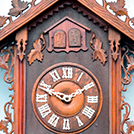
➤ Introductions should begin with a handshake, after which business cards may be exchanged. Physical contact beyond that is not welcomed. If a woman is present, it is polite to shake her hand first and then greet others.
➤ An effort to speak a little German is appreciated, so it is wise to begin a greeting with "guten tag" (good day).
➤ Germans like to get straight to the point. So when it comes to business meetings, avoid superficial small talk at the beginning of a conversation. Then, if there is a mutual business interest, small talk may follow to begin building a stronger rapport.
➤ Decorum is prized here, and loud, drunk, or obnoxious behavior will be viewed negatively.
➤ It is viewed as rude to keep your hands in your pockets.
➤ Punctuality is extremely important, so make an effort to be on time for appointments.
Hospitality
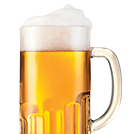
➤ On German trade show floors, hospitality is essential. When hosting a meeting, you should be able to at least offer three things: still water, sparkling water, and lattes. So you will need to rent a machine and cups from your exhibit provider.
➤ Large exhibits usually have hospitality lounges that serve everything from snacks and beverages to full meals. Some exhibitors will throw after-hours events in their space. Most small exhibits offer simple hospitality such as beverages and sweets.
➤ Sausages, potato salad, bretzel (local bread), and cookies are frequently served snacks, and typical beverage offerings include espresso, bottled water, soft drinks, and juices.
➤ Beer and wine are common on the show floor, and special permission to serve alcohol is usually unnecessary. In-booth cocktail hours (often beginning after 4 p.m.) are very common, although such events are typically more for building rapport than discussing business.
➤ Venues rarely require exhibitors to use the facility's exclusive caterer for food and beverages served inside the exhibit.
➤ Germans prefer dinner meetings to those held at breakfast or lunch.
Language
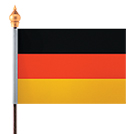
➤ English is commonly spoken in the business community, but it's wise to hire a host or hostess who speaks both English and German to staff your booth.
➤ English graphics and business cards are typically sufficient. If your company routinely does business in Germany and your staffers are comfortable speaking German, have graphics in both languages.
➤ English literature is usually acceptable, but having German versions available is a good idea, especially if the information is highly technical.
➤ If you have multilingual booth staffers, attach small flag icons to their name tags that can easily convey the languages they speak.
Staff Attire

➤ For men, business suits in dark colors are common.
➤ Shows that serve more casual industries will tend to be less formal.
➤ Women should dress in conservative business attire, avoiding short skirts or plunging necklines. High heels are common, but note that under-carpet padding is rare.
Installation and Dismantle
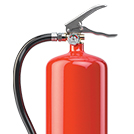
➤ Hanover does not have union labor, and there are no labor pools at local venues. Exhibit houses typically arrange installation-and-dismantle services with their own crews or subcontractors.
➤ Many show-floor laborers do not speak much English, so it is essential to have bilingual on-site supervision. Most exhibit houses will have a building supervisor who can communicate in English, so be sure to request one if necessary.
➤ Labor is generally quoted as a flat fee or a day rate.
➤ Raised, hard flooring is preferred to plush carpet at German trade shows, and exhibitors can never run wires under booth carpeting.
➤ Design, structural, and fire-safety specifications are very strict and vary by city, so always consult the show's exhibitor manual.
General Facts and Tips
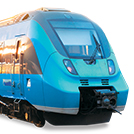
➤ Located on the Hannover Fairgrounds and comprising 27 halls and pavilions, Hannover Messe is the city's primary event space and one of the largest venues in the world.
➤ While badge scanners can usually be obtained through the event organizer, badges are not standard across shows, and when used, they often cannot be scanned. Exhibitors should plan to collect leads and contact information via a different method.
➤ Most exhibitors buy vouchers for admission to shows and send them to clients or prospects with an invitation to the event. Many show organizers also provide complimentary or discounted passes to exhibitors, who are then free to distribute them to customers.
➤ Hotels near exhibition venues and the city center can sell out more than a year in advance, so plan accordingly. Renting through services such as Airbnb Inc. is a good alternative.
➤ Public transportation is efficient and the preferred method of travel. Trains can be very crowded, but are often faster than cabs.
|







 ➤ Introductions should begin with a handshake, after which business cards may be exchanged. Physical contact beyond that is not welcomed. If a woman is present, it is polite to shake her hand first and then greet others.
➤ Introductions should begin with a handshake, after which business cards may be exchanged. Physical contact beyond that is not welcomed. If a woman is present, it is polite to shake her hand first and then greet others. ➤ On German trade show floors, hospitality is essential. When hosting a meeting, you should be able to at least offer three things: still water, sparkling water, and lattes. So you will need to rent a machine and cups from your exhibit provider.
➤ On German trade show floors, hospitality is essential. When hosting a meeting, you should be able to at least offer three things: still water, sparkling water, and lattes. So you will need to rent a machine and cups from your exhibit provider. ➤ English is commonly spoken in the business community, but it's wise to hire a host or hostess who speaks both English and German to staff your booth.
➤ English is commonly spoken in the business community, but it's wise to hire a host or hostess who speaks both English and German to staff your booth. ➤ For men, business suits in dark colors are common.
➤ For men, business suits in dark colors are common. ➤ Hanover does not have union labor, and there are no labor pools at local venues. Exhibit houses typically arrange installation-and-dismantle services with their own crews or subcontractors.
➤ Hanover does not have union labor, and there are no labor pools at local venues. Exhibit houses typically arrange installation-and-dismantle services with their own crews or subcontractors. ➤ Located on the Hannover Fairgrounds and comprising 27 halls and pavilions, Hannover Messe is the city's primary event space and one of the largest venues in the world.
➤ Located on the Hannover Fairgrounds and comprising 27 halls and pavilions, Hannover Messe is the city's primary event space and one of the largest venues in the world. 